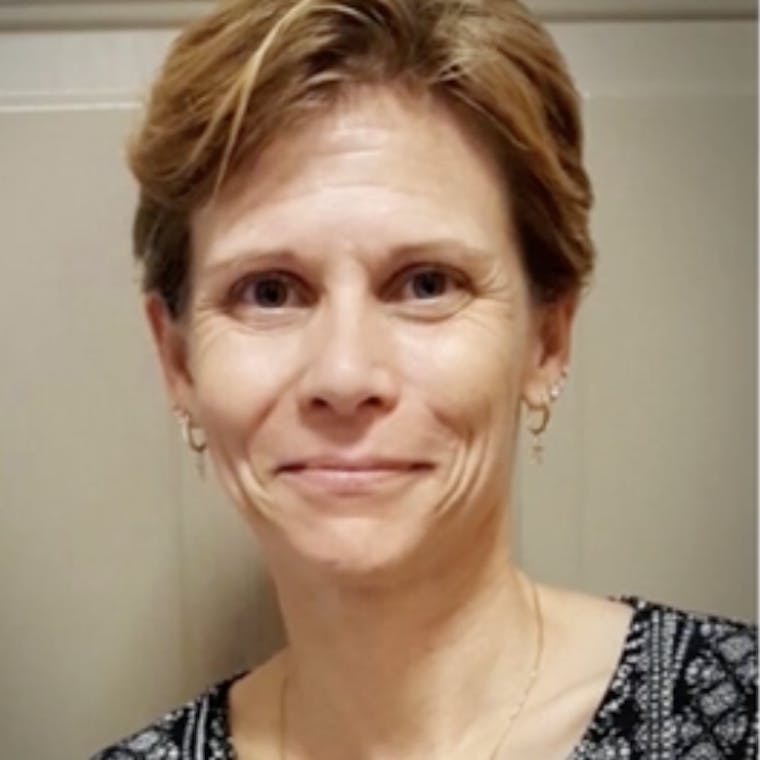Meet the Kaplan Experts: Karen Lilyquist, PhD, APRN, CNP, PMHNP-BC, NCLEX Instructor and Case Writer for i-Human Patients by Kaplan
by Karen Lilyquist, PhD, APRN, CNP, PMHNP-BC, NCLEX Instructor, Case Writer for i-Human Patients by Kaplan | June 25, 2020

The Kaplan Team is often cited as why schools stay with Kaplan, year after year. At Kaplan, there’s an expert at the heart of everything we do, whether it’s leading a class or developing innovative tools to help your students achieve their career goals. We stand behind our motto of, “For nurses, by nurses.” With our “Meet the Kaplan Experts” blog series, we introduce you to Kaplan’s extensive network of faculty, nursing, and educational experts and delve into their diverse areas of expertise so that you can learn even more about your Kaplan team. This week, we're pleased to introduce you to Karen Lilyquist, PhD, APRN, CNP, PMHNP-BC, NCLEX Instructor and Case Writer for i-Human Patients by Kaplan.

TELL US ABOUT YOURSELF
I was born and raised in Duluth, Minnesota, and after years living elsewhere I am back home in Duluth. Growing up, I went to parochial and private schools, graduating with a Bachelor’s degree in Dietetics and Nursing from the College of St. Scholastica. It was then that I started working for Kaplan. I acquired a Masters degree in Counseling, a PhD in Psychology, and a Masters of Nursing Science degree and settling into a career as a Nurse Practitioner, both in Family Health and Psych-Mental Health. This MSN also opened doors to teach undergraduate nursing students at a local community college. I have been with Kaplan for 27 years
I wear multiple hats: besides working for Kaplan, I work as a FNP at a dual diagnosis (CD-MI) treatment center, a prescriber of psychiatric medications, and teach nursing at a community college. There is a method to my madness: all my roles involve teaching, science, and caring for others. My career choices allow me to help others, in that moment, be the best that they can be.
What is your particular area of expertise?
NCLEX prep, logically deciphering test questions, and losing (but ultimately finding) most everything.
If you could spend an evening with anyone - living or deceased - who would it be and why?
I would spend the evening with my dad. He died almost four years ago and I miss him every day. His death came much sooner than I anticipated and while I thought I was ready, I surely was not. He had a kind soul. He had sage advice. He had a logical mind, yet recognized my struggles and stayed by my side, without question. I remember snippets of growing up: him reading me the comics, us playing catch in the yard and hiking the trails of Duluth. I remember him helping me with algebra problems as a high school freshman and reviewing my dissertation. I remember being at his retirement party and him at my graduations. I remember travels and stories of places around the world. I remember spending time with him in his last days, just sitting and being present.
TELL US ABOUT YOUR EXPERIENCE AS A NURSE EDUCATOR
How long have you worked for Kaplan Test Prep and what drew you to your current role?
I have been with Kaplan for 27 years, starting with the local center after taking a NCLEX Prep course. Initially, I worked in the office (had to “check out” the material for use at the centers and they came to the center for tutoring) and initially taught pre-college classes, and then NCLEX, GRE, and LSAT. As Kaplan moved online, so did I. I loved the online platform and have found my home there. I moved from the classroom to marketing, doing Facebook Live and YouTube events, taking part in our Kaplan NCLEX Prepcasts, and at one time I was the go to person for new NCLEX instructors. I continue to teach NCLEX prep and channel sessions and write cases for i-Human Patients for Kaplan and love every minute. Mark Twain said: “find a job that you enjoy doing and you will never have to work a day in your life” - this is true of my work with Kaplan.
I find it ideal to balance practice with teaching, to bring forward examples of why an assessment is needed or why the student would select a given implementation. We teach a decision tree (a logical thought process) to use when answering test questions - that logic is applicable not only to test questions, but the real world. It’s fun to demonstrate that to students.
I love the work with Kaplan - to work with students and see the “ah ha” moment; sharing my knowledge, experience, and love for test questions; knowing that our work at Kaplan helps students achieve their dreams provide the motivation each day.
Our teachers set Kaplan apart in the industry. We bring a human element to the classroom. We have been in our student’s shoes, having taken the NCLEX and felt the anxiety and the angst, the success and failures. Our instructors teach for Kaplan because we believe in our product and more, we believe in our students. We are here to support our students every step of the way to success.
Why is it so important for institutions to prepare students to “think like a nurse?”
The needed skill is the ability to think critically.
The profession of nursing often attracts those that have a knack for science and have a desire to help others. Nursing education builds on a foundation of math, science, biology, and physiology, and prepares students to meet the unique needs of diverse patients. We teach practical skills: start an IV, dress an open wound. Remembering facts and understanding physiology is not enough to provide safe and effective care. Nurses need to think clearly and critically to make sound, logical, and safe decisions.
To think like a nurse - to use the nursing process - is to identify a concern, gather the needed information, determine the possible solutions, select the safest and most effective action, and then evaluate the outcome. Students and nurses need to bring that thinking process into everyday life. Content knowledge may help with one question, with one patient; critical thinking is a transferable skill and will help with all situations.
In your opinion, how can institutions best support students preparing for their exams?
In my opinion, as nurse educators we need to build on the concepts of science and physiology, of health and wellness and disease process. We need to teach the concept of critical thinking and encourage our students to think about application of knowledge, not simply memorization. We need to engage students in their learning, to incorporate nursing judgment and reflect on the why behind actions.
As for test day preparation - we need to start that process on day one of nursing school. Computerized exams with a lock down browser, quiet environment, no beverage or snacks is what students will experience. We can lessen test day anxiety, but making it a part of every day testing.
Which current test prep innovations do you wish you’d had access when you were preparing for your board exams?
I wish I had access to the current technologies. The virtual simulations are an amazing medium for learning - the need for problem solving, having options and needing to select the safe, effective action in a timely manner, getting real time feedback as the “patient” improves or declines. Feeling the anxiety or dread as you experience the outcome. This provides the opportunity to learn from our mistakes or feel confident in our decisions, and then discuss it with others who have engaged in the same experience.
ADVICE
If you could offer one piece of advice for students preparing for their board exams, it would be:
Two things:
(1.) Take time to remediate each question:
Review the needed content and determine the thinking strategy needed for that particular question. Remediation is where the learning takes place.
(2.) Develop a support system (in nursing school, while preparing for NCLEX, ast your first job):
Find those individuals that make you laugh, that support your values, that you can turn to when you have a question. These individuals will be a part of your life for years!
Is there a quote or saying that you live by?
“How many times have you noticed that it’s the little quiet moments in the midst of life that seem to give the rest extra-special meaning?”
~ Fred Rogers
NCLEX® is a registered trademark of the National Council of State Boards of Nursing, Inc. Test names are the property of the respective trademark holders, none of whom endorse or are affiliated with Kaplan.

I wear multiple hats: besides working for Kaplan, I work as a FNP at a dual diagnosis (CD-MI) treatment center, a prescriber of psychiatric medications, and teach nursing at a community college. There is a method to my madness: all my roles involve teaching, science, and caring for others. My career choices allow me to help others, in that moment, be the best that they can be.
